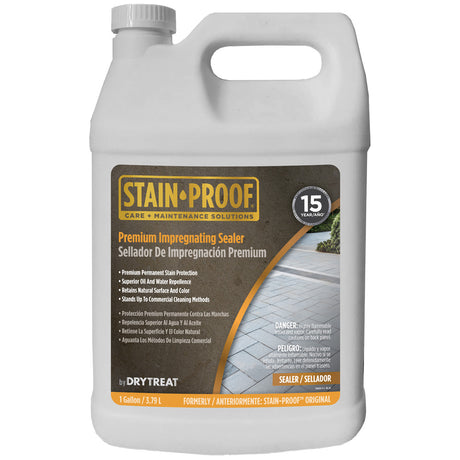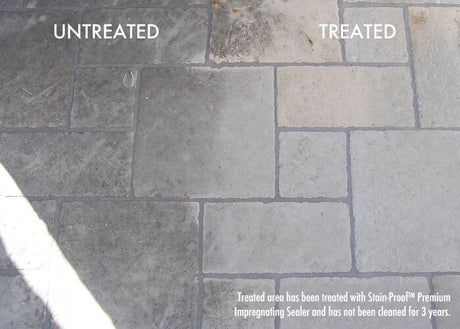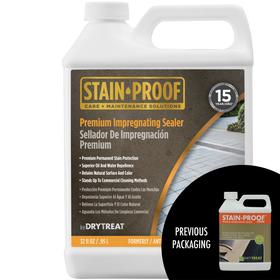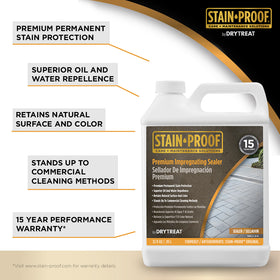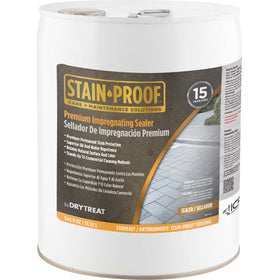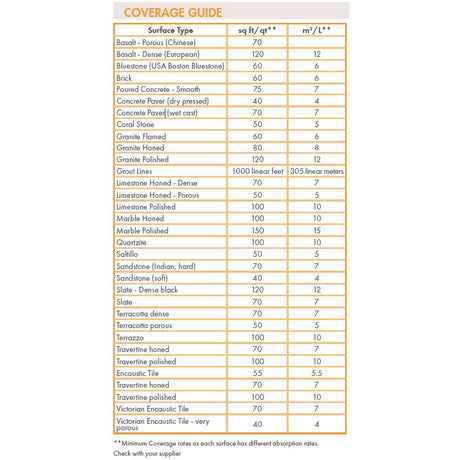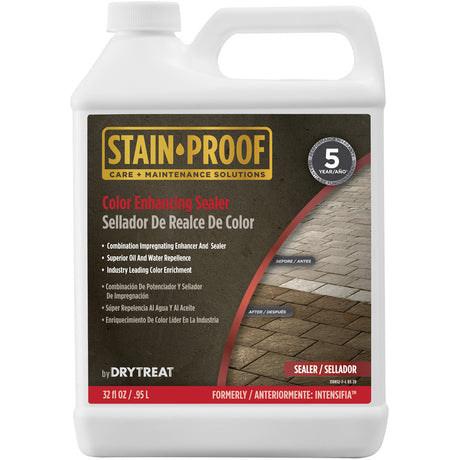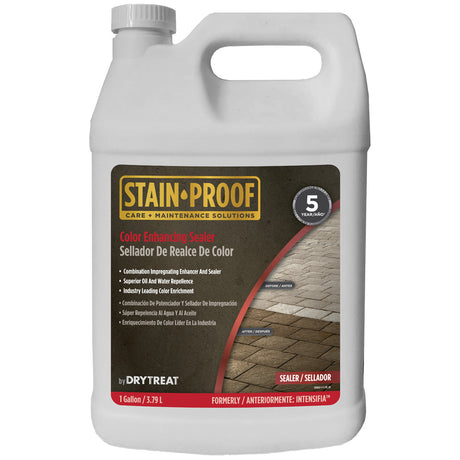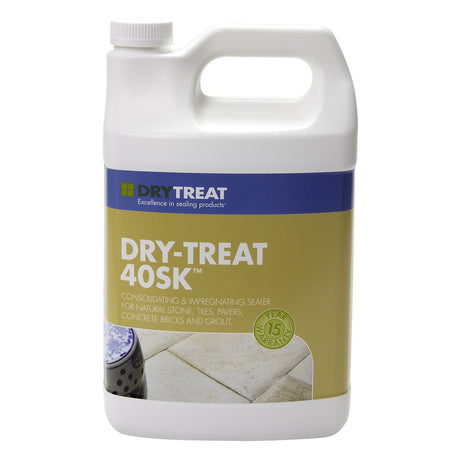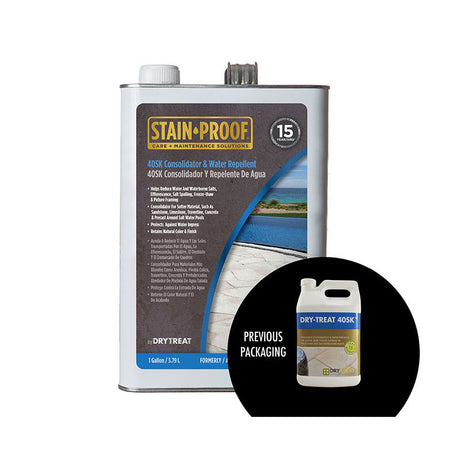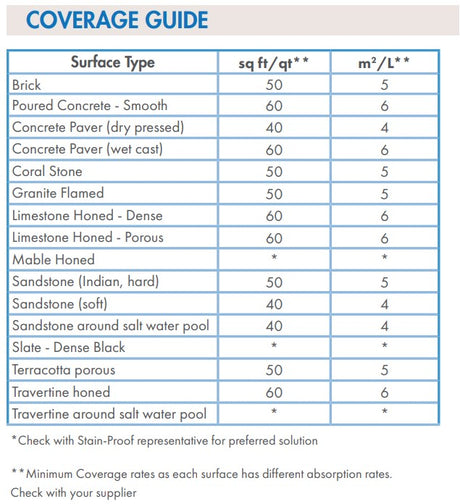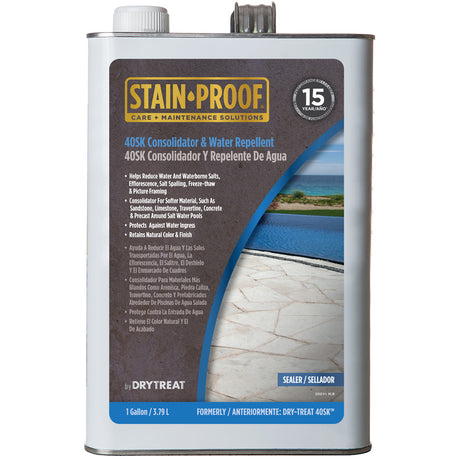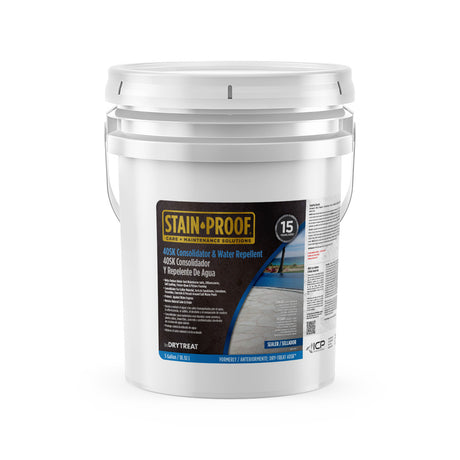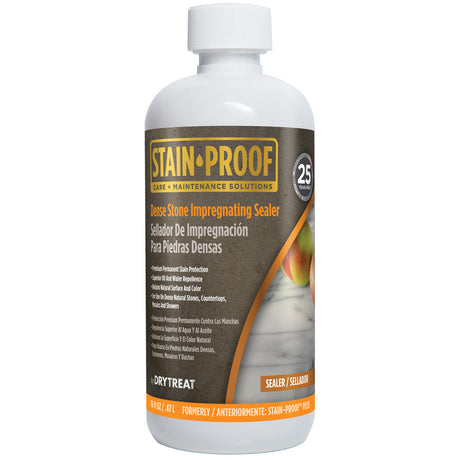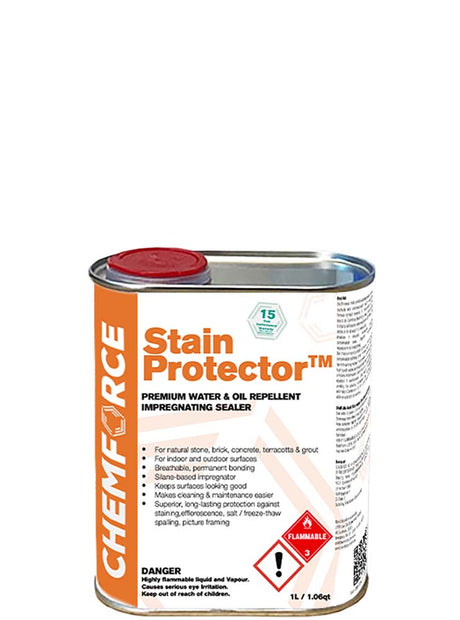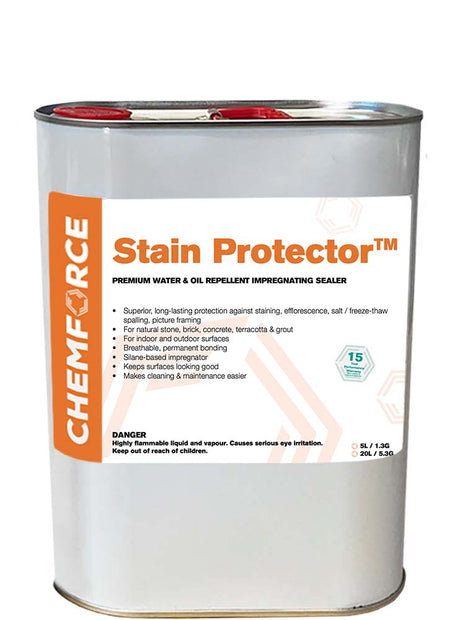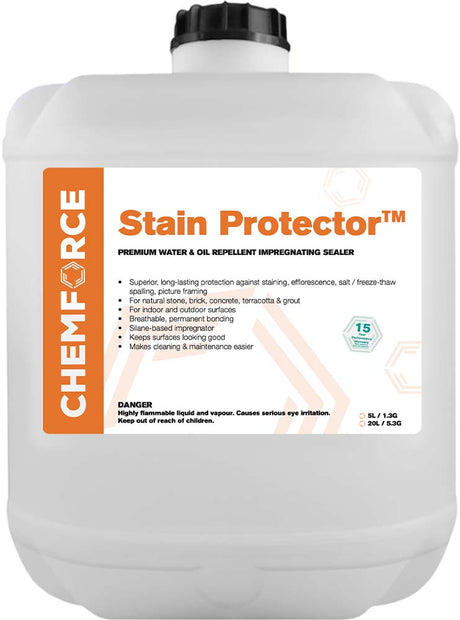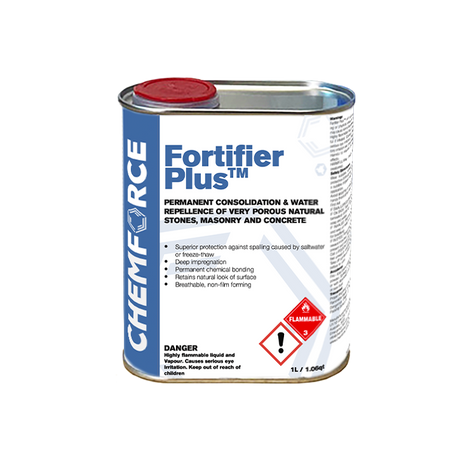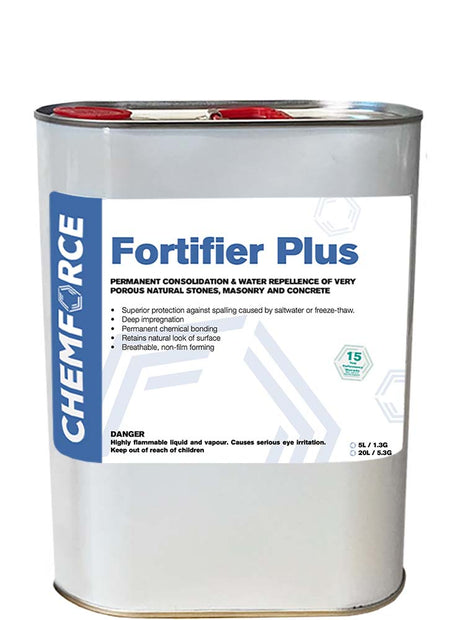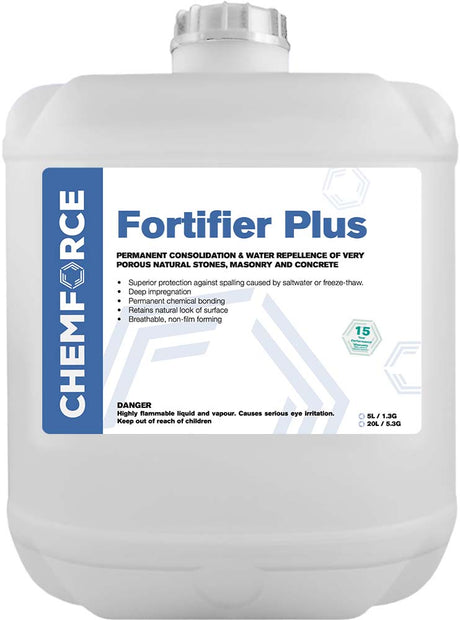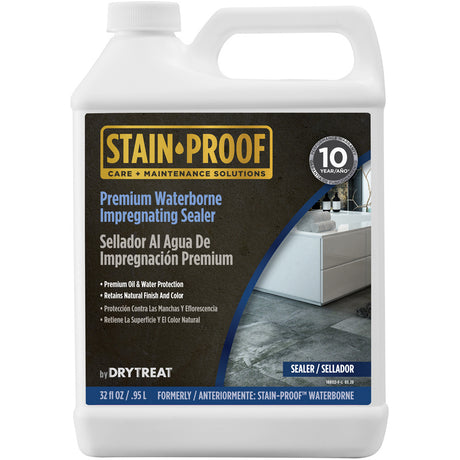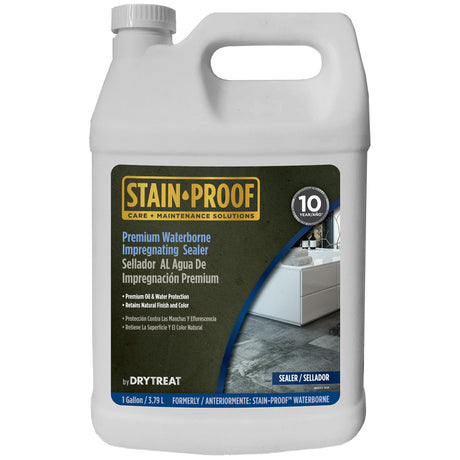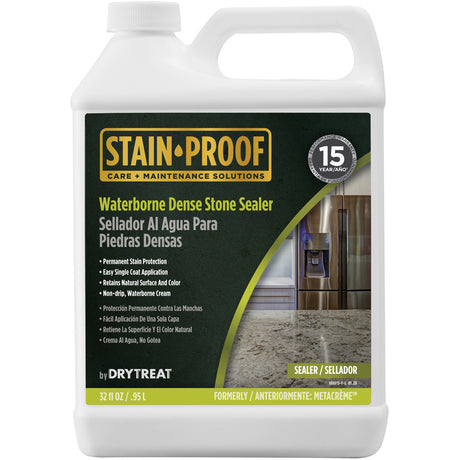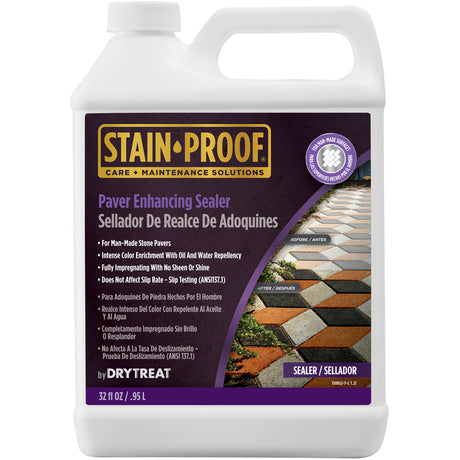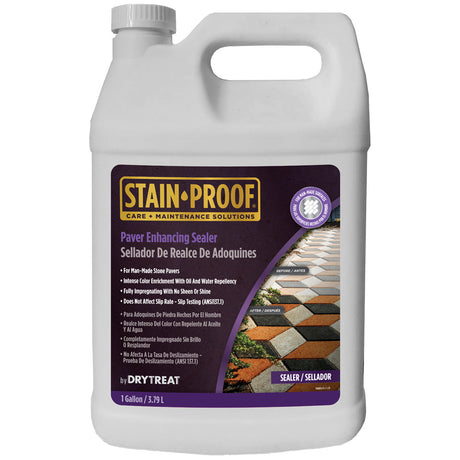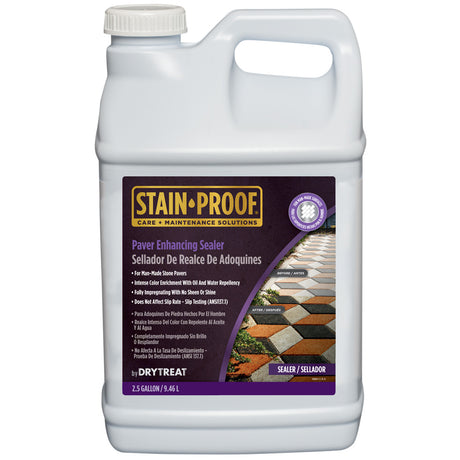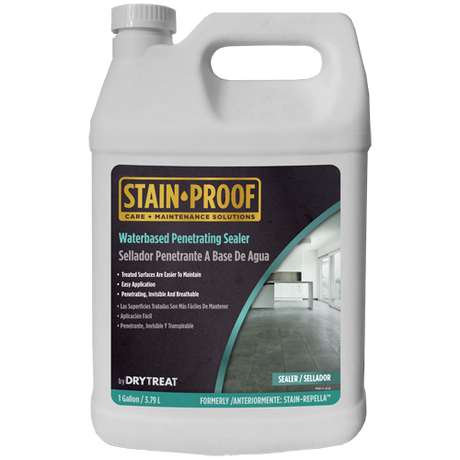Dry Treat Stain Proof
Stain Proof Premium Impregnating Sealer Original™
From $67.00Unit price /UnavailableIn stock (Sydney Warehouse)Dry Treat Stain Proof
Stain-Proof Colour Enhancing Sealer
From $74.00Unit price /UnavailableIn stock (Sydney Warehouse)Dry Treat Stain Proof
Dry Treat 40SK Consolidator & Water Repellent
From $290.30Unit price /UnavailableIn stock (Sydney Warehouse)Dry Treat Stain Proof
Dense Stone Impregnating Sealer - 473ml
$73.40Unit price /UnavailableIn stock (Sydney Warehouse)Chemforce
From $95.00Unit price /UnavailableIn stock (Sydney Warehouse)- Sold out
Dry Treat Stain Proof
Stain-Proof Premium Waterborne Impregnating Sealer
From $79.00Unit price /Unavailable Chemforce
Chemforce Enhancer + New Formula
From $95.00Unit price /UnavailableIn stock (Sydney Warehouse)- Sold out
Dry Treat Stain Proof
Stain-Proof WaterBased Penetrating Sealer (Stain-Repella) - 3.79L
$225.75Unit price /Unavailable
Many types of materials are used as pavers, including limestone, granite, travertine, brick and concrete. Although each material possesses a certain level of durability, exposure to the elements can affect their longevity and quality.
Sensitive permeable surfaces include bricks, concrete, stone and other paver varieties. When the paver surface remains exposed or unsealed, it might discolour, bulge or crack because it absorbs water. Moreover, the inadequate sealing of paver materials increases the risk of premature failure from freeze-thaw cycles or the pavers shifting in place.
To protect your pavers, it’s crucial to keep them sealed using a high-quality paver sealer.
Choosing the right paver sealer
Selecting the proper paving sealer is crucial to ensure your pavers get the protection they need to remain functional and structurally sound for longer.
Whether you need a stone sealer, concrete paver sealer, brick paver sealer or porcelain sealer, you must carefully weigh your options if you want to ensure your pavers continue to perform their intended function and look brand new. There are various types of surface sealers. To find the best paver sealer for your project, consider the following qualities:
- Breathability — The most crucial factor to consider is the breathability of a paver sealer, as one that can’t ‘breathe’ won’t last very long. A breathable paver sealer allows moisture vapours to move through the stonework and evaporate from below the surface after sealing.
- Natural finish — This is more a matter of preference, as paver sealers come in various finishes, including matte, wet look or high gloss and satin. If you want a natural finish, look for a penetrating paver sealer absorbed deep into the stonework or masonry. This type of sealer also doesn’t form a film and won’t change the natural look of your paver material.
- Non-slippage —Pavers could have a slippery surface, especially when wet. This also depends on the sealant, particularly if you use a high-gloss or wet-look paver sealant. Therefore, during selection, consider a sealant’s slip quality. For pavers around swimming pools or other high-traffic areas, non-slip, breathable paver sealers are frequently used. A high-gloss sealant may be advantageous for low-traffic areas with aesthetic value, like retaining walls.
- Expected lifespan — The best paver sealers have a 15-year lifespan, with Dry-Treat sealer, now known as Stain-Proof sealer, guaranteeing a minimum of 15 years and up to 30 years. However, various elements, like weather, traffic and maintenance, could shorten the sealant’s lifespan. These could reduce the lifespan of the pavers as well. To hide wear on paver stones, use a film-forming sealant. A non-film-forming sealer cannot conceal the tell-tale symptoms of age.
- Drying and curing period —The majority of paver sealers dry in 24 hours, while some finish drying in under six hours, depending on the temperature or climate. When enough sealer solvent has evaporated, the sealant is dry, so the stones are no longer sticky. Meanwhile, curing happens when the solvents combine with the oxygen in the air and discharge from the sealer. Paver sealants that have reached their final stage of curing are impervious to damage. While many paver sealers dry in 24 hours or less, curing could take seven to 30 days.
- Penetration — Deep-penetrating sealants cover any gaps or other spaces in the masonry or concrete. They shield the substrate material while preventing damage from grit, dirt, grime, debris or insects.
- Cost — You can calculate the cost of sealing paver stones based on the size of the area covered. Another cost factor is the paver stone placement and ease of accessibility. The type of paver is another component that affects cost. Other factors that impact how much you’ll spend include the type and amount of sealant required and how absorbent the pavers are. You’ll be using more sealer on highly porous paver stones than on less absorbent pavers.
Paver sealer options at The Landscape Store
At The Landscape Store, you’ll find several paver sealer options from Dry-Treat or Stain-Proof to secure the best one for your project.
Aside from featuring an impressive collection of irrigation-related products and solutions, we also provide paver cleaners. If you have any questions, get in touch today!
FAQs
What type of sealer is best for pavers?
The type of sealer you choose depends on the paver or paving material. But if you want an eco-friendly paver sealer option that doesn’t contain volatile organic compounds (VOCs), you may opt for a water-based sealant in the finish you want.
Should you seal your pavers?
You should seal your pavers not only to maintain their appearance but also to extend their functional lifespan.
When should you seal pavers?
You should seal new pavers after 60 to 90 days. Waiting allows construction debris and efflorescence to make their way to the surface and be cleaned off by rain or a garden hose.

